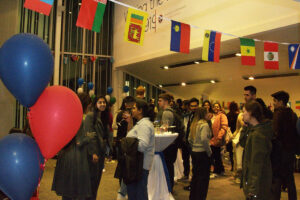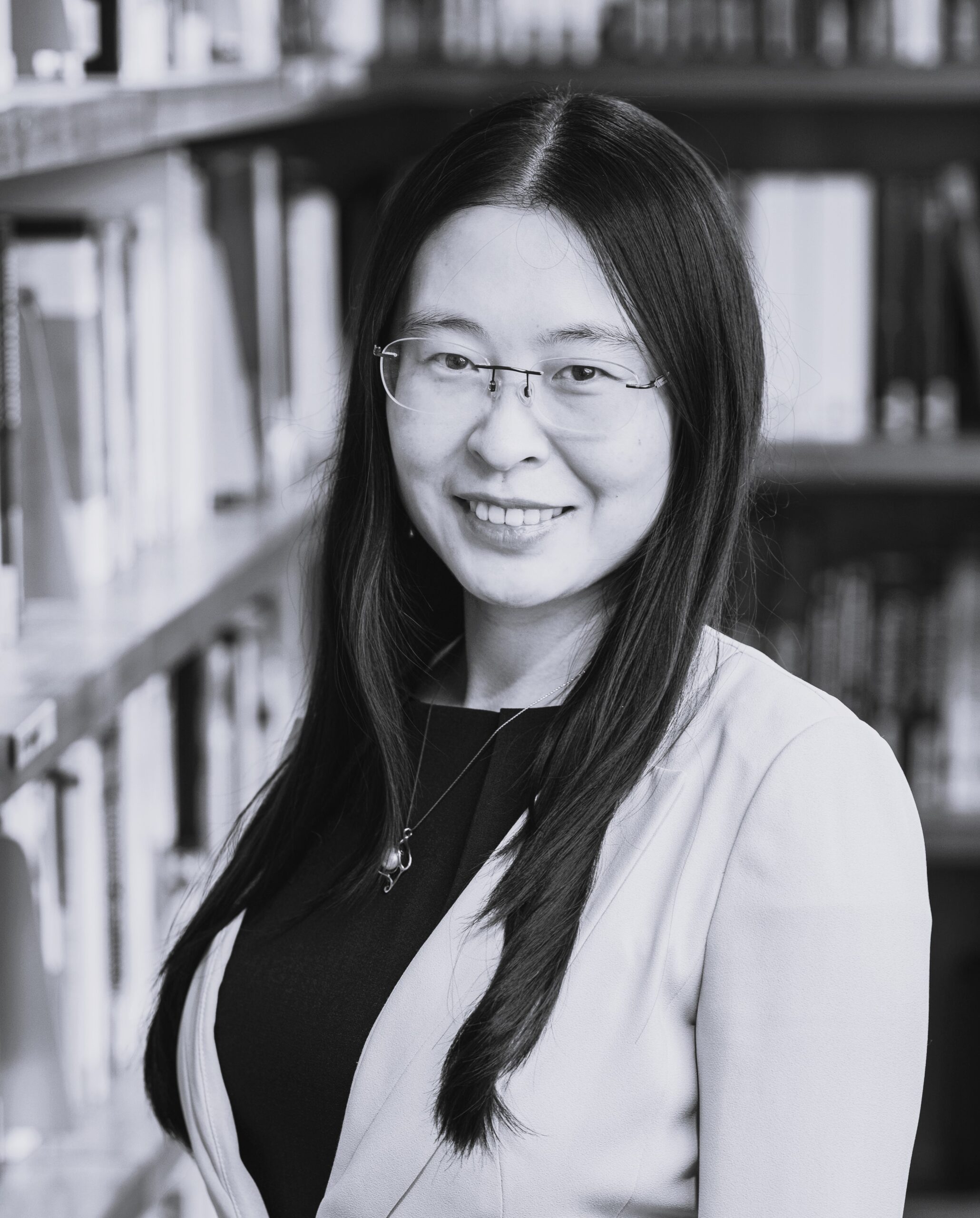
In this post, Stella Wang describes how the Student Development Team in the Business School prepares students in cross-cultural communication and inter-cultural teamwork skills in order to support their success in assessed group projects. Stella is a Student Development Manager at the University of Edinburgh Business School. This post is part of the Group Work series.
With over 70 nationalities represented, the Business School offers students a truly diverse cultural environment. As group assessments are an essential part of the academic experience, providing effective support and guidance is crucial for student success in intercultural teamwork. This blog post introduces a layered learning programme designed to enhance students’ self-awareness and cross-cultural collaboration skills.
The Student Development Team in the Business School is dedicated to help students develop skills for university and career readiness for the global workplace.
We often hear students’ feedback and frustrations regarding assessed group projects, particularly when collaborating with colleagues who have different working styles. During the last five years, I led the development of an international strategy aimed at enhancing the student experience. This included a layered learning programme focused on supporting students in building intercultural awareness, communication, and teamwork skills.
1. Facilitating transition to a multi-cultural environment
The MSc learning journey begins with a timetabled ‘Understand Your Cultural Transition’ session at the start of semester 1. Students are encouraged to share and discuss culture shock experiences since arriving in Edinburgh. This helps them to recognise and appreciate their diverse backgrounds and experiences. By exchanging challenges and advice in the session, students start building peer support networks that last throughout their academic journey.
Students appreciate the engaging and interactive lecture style, which offers opportunities to reflect, discuss, and learn from each other. This session lays a strong foundation for intercultural understanding before they engage in cross-cultural teamwork as part of their curriculum.
“Stepping into the unknown as an international student felt daunting at first, especially as a native Hindi speaker worried about understanding different accents. But the intercultural sessions took away all that hesitation—showing me that despite our accents and backgrounds, we’re all fundamentally the same. It helped me make friends, learn about their cultures and festivals, and made teamwork more efficient and genuinely enjoyable.”
– Pranshi Arora, MSc Accounting & Finance 2024-25
2. Building community and connection before teamwork begins
Social connection and trust-building are essential before students engage in group work. To facilitate this, the Student Development Team in the Business School organised “potluck” events for each MSc programme, where students bring a dish from their culture to share with their cohort. This event allows students to share stories and cultural backgrounds, quickly fostering closer connections.

3. Preparing students for success in cross-cultural teamwork
To enhance learning and set students up for success in multicultural group assessments, I designed a “Cross-Cultural Teamwork” session. This session equips students to work effectively with colleagues from around the world.
During the session, students discuss challenges in teamwork in a supportive environment, allowing diverse perspectives to be heard and understood. This helps them explore the underlying reasons behind different behaviours. Through peer discussions, students will collaboratively develop constructive solutions and agreements.
The benefits of peer support discussions in intercultural teamwork include:
- Recognising and addressing current issues experienced by students;
- Sharing tested and successful examples, which leave a lasting impact;
- Students relating better to examples and advice shared by peers experiencing similar team projects.
Students participating in these workshops will act as catalysts, promoting best practices and inclusion in their project groups, ultimately enhancing student experience and collaboration.
‘Essential takeaways from the session included: communication skills, understanding, trust, honesty, compromise, patience, responsibility, and open-mindedness – all of which are fundamental for fostering collaboration in diverse teams.’
Student blog: International Week 2025: Lessons in culture, careers, and connections
4. Enhancing self-awareness with cultural intelligence tools
The Student Development Team in the Business School offers interactive Cultural Intelligence (CQ) workshops. These sessions provide guidance and space for students to reflect on their experiences and behaviours when interacting with people from different cultural backgrounds. The sessions are offered to small, self-selected groups of students aiming to deepen their self-awareness and improve their adaptability in cross-cultural interactions. We offer students the opportunity to complete psychometric CQ assessments ahead of the session. As an accredited CQ facilitator, I lead in-depth discussions around cultural values, biases, and assumptions, helping students to identify their strengths, gaps and growth areas. The learning outcomes of the session include greater self-awareness and enhanced adaptability in intercultural interactions, leading to a positive impact on students’ teamwork experiences.
5. Key lessons and challenges
Over the past five years, the Business School’s Student Development Team has refined its internationalisation strategy to enhance cross-cultural communication and teamwork. Here are some key lessons learned, and challenges faced:
- Clearly defining events, outlining learning outcomes, and connecting topics to student interests (such as improving group assignment experiences) help highlight the value of these sessions.
- Striking a balance between reaching a larger number of students and providing personalised, in-depth discussions remains crucial.
- An ongoing challenge is engaging students who may not realise that they need support in developing cross-cultural teamwork skills.
- Looking ahead, with budget and staff limitations, we aim to maximise impact by integrating more sessions into the curriculum, ensuring wider reach and effectiveness.
 Stella Wang
Stella Wang
Stella Wang is a Student Development Manager, accredited coach and Cultural Intelligence facilitator at the University of Edinburgh Business School, with eight years of experience working with students to enhance their global employability. She leads the Team’s Internationalisation and Entrepreneurial Activity Strategies, designing innovative programmes and activities for students that align with academic and career development needs. Collaborating closely with academic colleagues, she co-creates and embeds bespoke engagement and learning experiences in-curricular and co-curricular.


